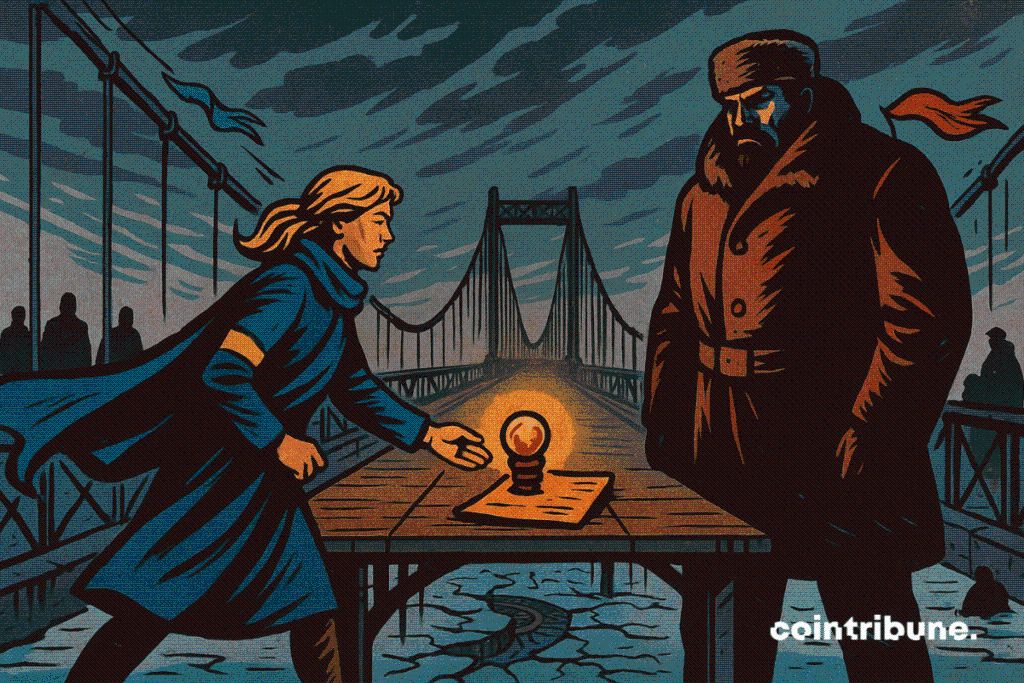Ukraine And Its Allies Make Historic Proposal To Russia
As the conflict in Ukraine reaches a critical stage, Kiev and its Western allies are advancing a proposal for a 30-day ceasefire, complete and unconditional. Supported by Washington and major European capitals, this initiative aims to open a breach toward talks. However, beyond the call for a truce, one question dominates: will Russia see it as a genuine outstretched hand or a tactical maneuver concealing a strategic advantage for Ukraine? The answer could redraw the balance of power on the diplomatic front.

In Brief
- Ukraine, supported by its Western allies, proposes to Russia a total 30-day ceasefire.
- This truce, scheduled to begin on May 12, would apply to all fronts: land, air, and sea.
- Russia has not yet given a favorable response, demanding the halt of arms deliveries to Ukraine as a prior condition.
- Vladimir Putin simultaneously proposes direct negotiations in Istanbul, but under strict conditions.
A Bold European Diplomatic Initiative
On May 10, 2025, in Kiev , Ukraine and its Western allies presented a proposal for a total and unconditional ceasefire. This 30-day truce, which is to begin as early as Monday, May 12, would be valid on all fronts: land, air, and sea. Here are the main elements of this initiative:
- A 30-day truce proposal: the truce is complete and unconditional, including all fronts (land, sea, air);
- Support from European leaders: the presence in Kiev of European leaders Emmanuel Macron (France), Friedrich Merz (Germany), Keir Starmer (United Kingdom), and Donald Tusk (Poland) to endorse this initiative;
- Volodymyr Zelensky at the forefront: the Ukrainian president launched the ceasefire offer and emphasized the importance of opening a path toward peace negotiations;
- Support from Donald Trump: the American president expressed his support by calling for a total 30-day ceasefire and stressed the importance of this pause for de-escalation.
- American-European talks: Emmanuel Macron specified that talks between the United States and Europe are underway to implement a joint plan aiming to guarantee the ceasefire.
Russian-side Blockages: The Question of Guarantees
While the ceasefire offer seems to have found broad resonance in the West, Russia has not yet responded favorably to this proposal. Moscow has, in the past, rejected such initiatives, arguing that a firm guarantee is needed first regarding the halt of arms deliveries to Ukraine before considering a ceasefire.
According to analysts close to the Kremlin, the demand for an unconditional 30-day ceasefire represents Western pressure aimed at weakening Russian military capabilities. Accepting a truce at this time could give a strong symbolic and media dimension to the West, which Russia, an influential member of the BRICS alliance, perceives poorly.
Moreover, Vladimir Putin, in a later statement, proposed new direct negotiations between the belligerents in Istanbul but under precise conditions: Ukraine would first need to recognize certain Russian gains on its territory.
These negotiations would be a means for Russia to buy time while consolidating its positions on the ground. The outcome of this proposal remains uncertain, and diplomats wonder about the reaction of other international actors. On one side, American and European diplomacy pushes for an immediate compromise, but on the other, the Kremlin seems to play the strategic waiting game, hoping for greater concessions over time.